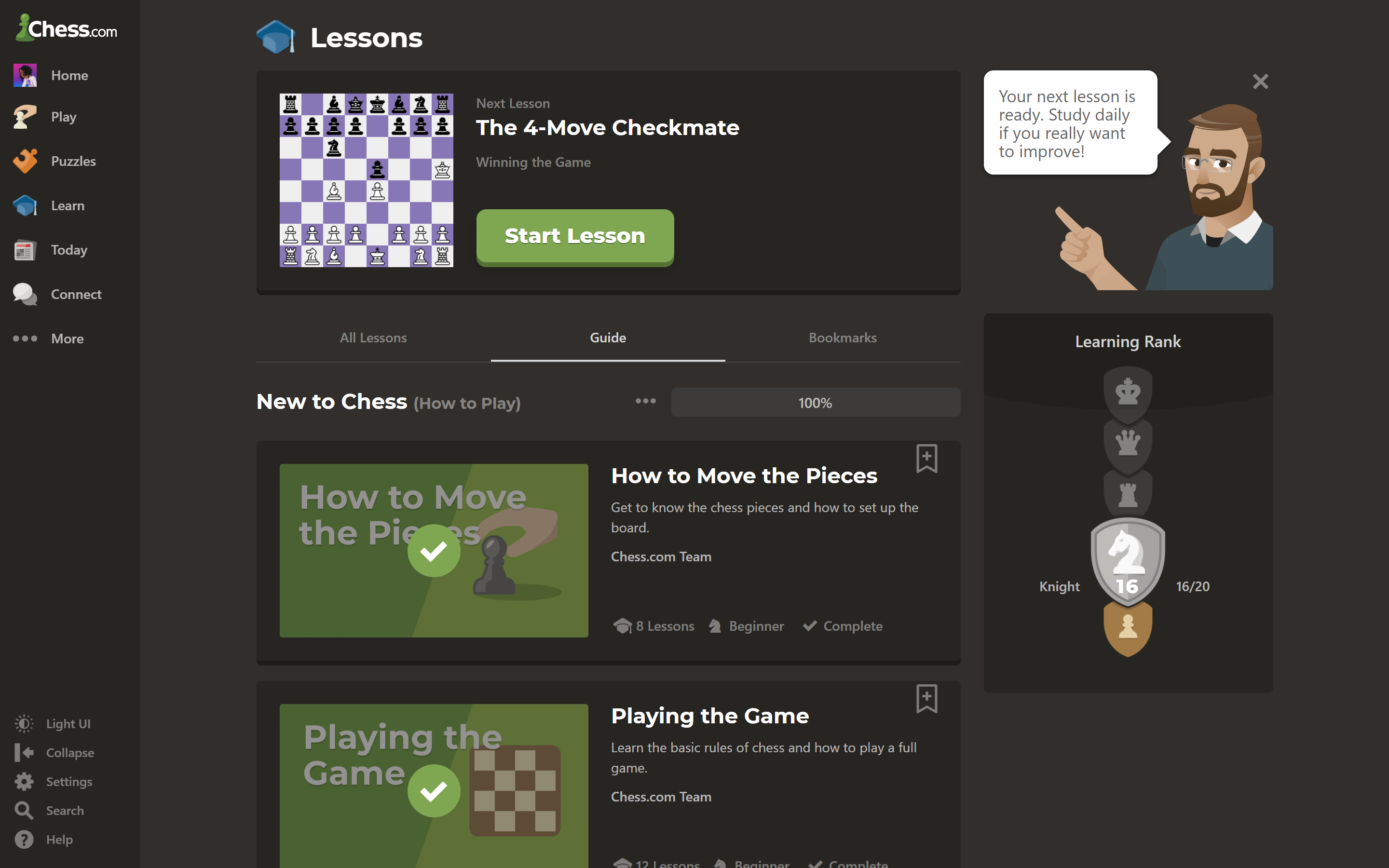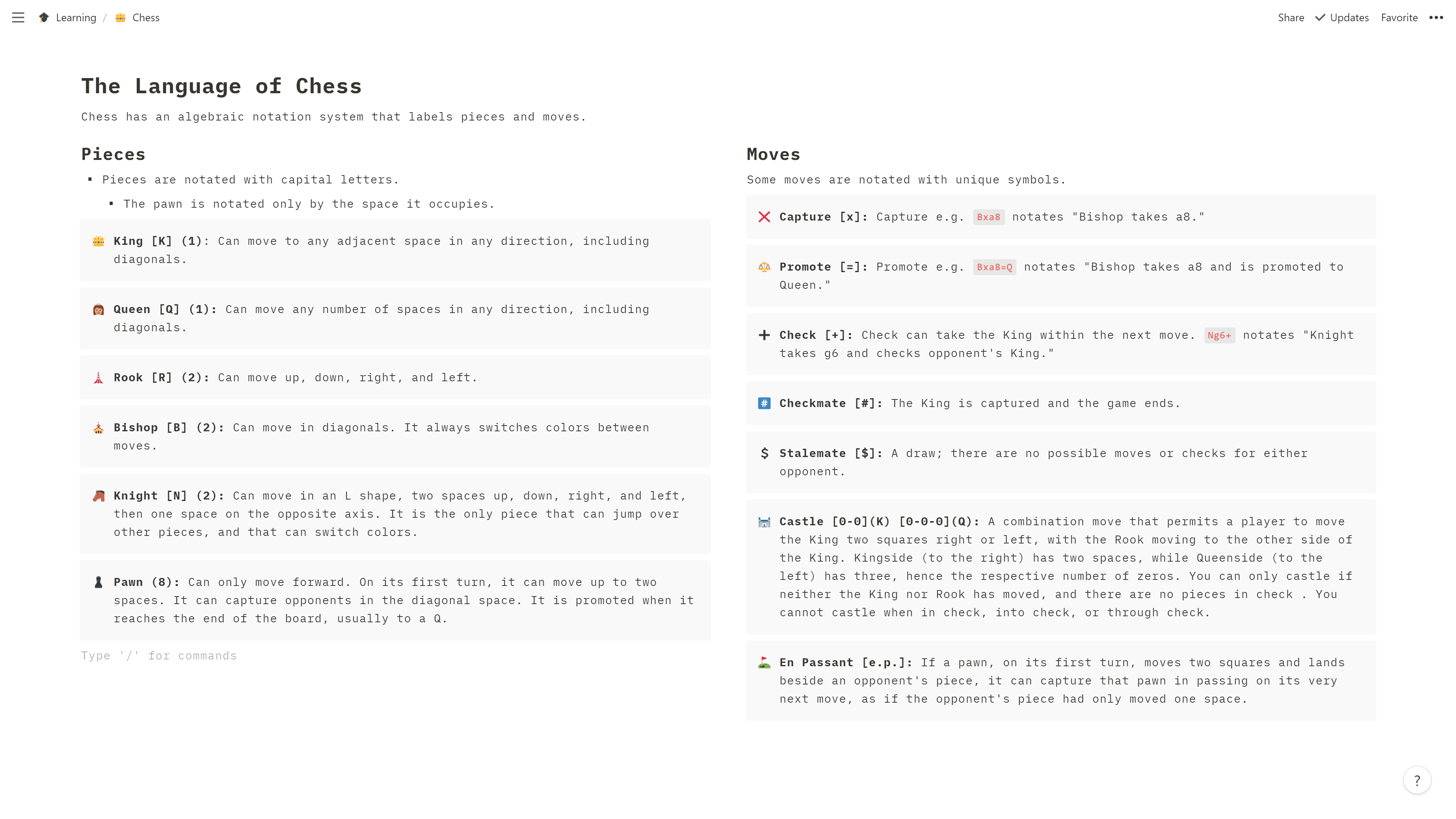Learning Chess
Author's Note: This blog post is based on an epiphany I shared in a Discord community back in February. I'm documenting this now because I want to remind myself that ideas can literally come from anywhere, even the little conversations I have with myself. All it takes is a little time to polish it into something worth reading.
Netflix released a new show, Queen's Gambit back in October of 2020. The show shot to the top of the Netflix charts in 63 countries, just narrowly falling short of The Witcher's record, and remains at a comfy 97% on Rotten Tomatoes. While I have yet to watch it myself, I did notice a sudden uptick in the interest of chess in the cultural zeitgeist at the time. I took it as a sign to finally learn how to play chess for myself. Joining a group of friends in a Discord community, we vowed to learn how to play chess. Like so many things that brought me comfort in 2020, Chess allowed me to reconnect with my younger self.
While video games were a huge pastime in my family, boardgames were never too far behind. The first boardgame I remember playing is Candyland, but I tired of it quickly as I began to excel in reading and math. Before long, I graduated to Sorry, Trouble, Hungry, Hungry, Hippos, and Chicken Limbo. My mom dragged us into games of backgammon, Yahtzee and Scrabble, and even though I was something of a wordsmith even then, I could never top my grandfather or adequately check my dad's arguments for why a word counted. Dad did eventually get around to teaching me checkers, but no one in my family knew how to play chess, so I never learned, and forgot about it for a while as more people promised to teach me but never did. Only recently did I decide to take matters into my own hands.

I joined Chess.com in November and began to learn a little each day. Though I fell out of practice after a little while, I did take a ridiculous amount of notes to help me retain my knowledge. The nice thing is that I could learn from chess.com, whether I was at my desk or in bed on my phone. Back in February, our merry band of fledgling chess enthusiasts held a little tournament. While I did lose against my opponent, I thoroughly enjoyed trying my hand at a game against a real player. It absolutely is really fun to intermingle theory with practice.

Chess, like most of my favorite games, is very meditative. It has a way of absorbing every bit of my attention as I try to remember what I learned and hold several moves, both past and speculative, in my memory. Play is a form of self-care that I am eager to explore as a form of meditation. I'm slowly compiling a list of activities, like chess, that help me get into flow super quickly. Recently, I had the epiphany that it's not just the activity, but the mindset that makes it enjoyable. Beginner's mindset helps me remain curious, excited (positive anxiety) and unattached to the outcome. That, to me, is the essence of play, a momentary suspension in joy.